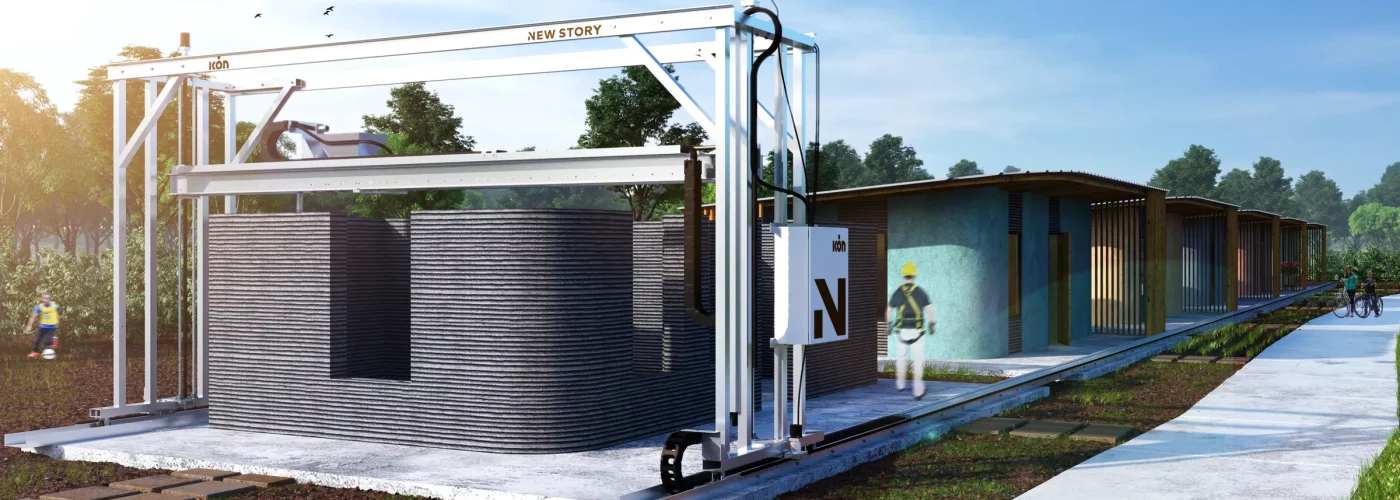Are you – like millions of others – amazed by 3D printed houses but wondering if they’re safe? Well, it’s interesting to note that these homes are actually quite similar to traditionally built concrete houses in terms of safety. Believe it or not, concrete is one of the safest building materials out there, and has been used in architecture for centuries. In fact, concrete walls are often safer than many other common building materials!
How are they built?
It is via high-tech 3D printers that a concrete mixture is extruded with ideal consistency and a controllable drying factor which allows workers to stack layers of cementitious mix. What’s also interesting is that it also retains dimensional accuracy while allowing the concrete to flow smoothly. Once the workers set the machine to print the system extrudes the concrete according to the floorplan. And don’t worry, safety is always the top priority. These homes are required to meet local state laws and regulations – just like any other home.
Why are 3D printed concrete walls a great option?
Concrete is much more durable than wood and has a much higher resistance to fire which means that it’s less likely to catch fire or spread flames in case of a fire outbreak. It is not susceptible to rotting or decaying and can withstand harsh weather conditions and last much longer than wood. Another important aspect of 3D printed concrete walls is that they are very resistant to pests such as termites which can be a significant problem for wood structures. Termites can cause extensive damage to wooden structures and often compromise the structural integrity of a building and lead to safety concerns. The good news here is that concrete is not a food source for termites so they are unlikely to cause any damage to 3D printed concrete walls. But that does not mean that homeowners shouldn’t follow Integrated Pest Management for their family’s safety.
How can you follow IPM principles in your home?
As you may already know pests can pose a safety risk in your home – this is why it’s important to follow Integrated Pest Management (IPM) principles and keep your living environment safe and healthy. It’s common knowledge that certain pesticides can be harmful to humans and pets if used improperly so it’s crucial to be mindful of the products you use. But how exactly can you follow IPM principles in your home? A simple step would be to practice good sanitation by keeping your 3D printed home clean and free of clutter as this can help prevent pests from finding a place to live and breed. If you do need to use pesticides, it’s important to read the label carefully and follow the instructions to a T.
The good news is that following IPM principles in your home can potentially save you money and keep your living environment safe and healthy for years to come.
Building, Design & Construction Magazine | The Choice of Industry Professionals





